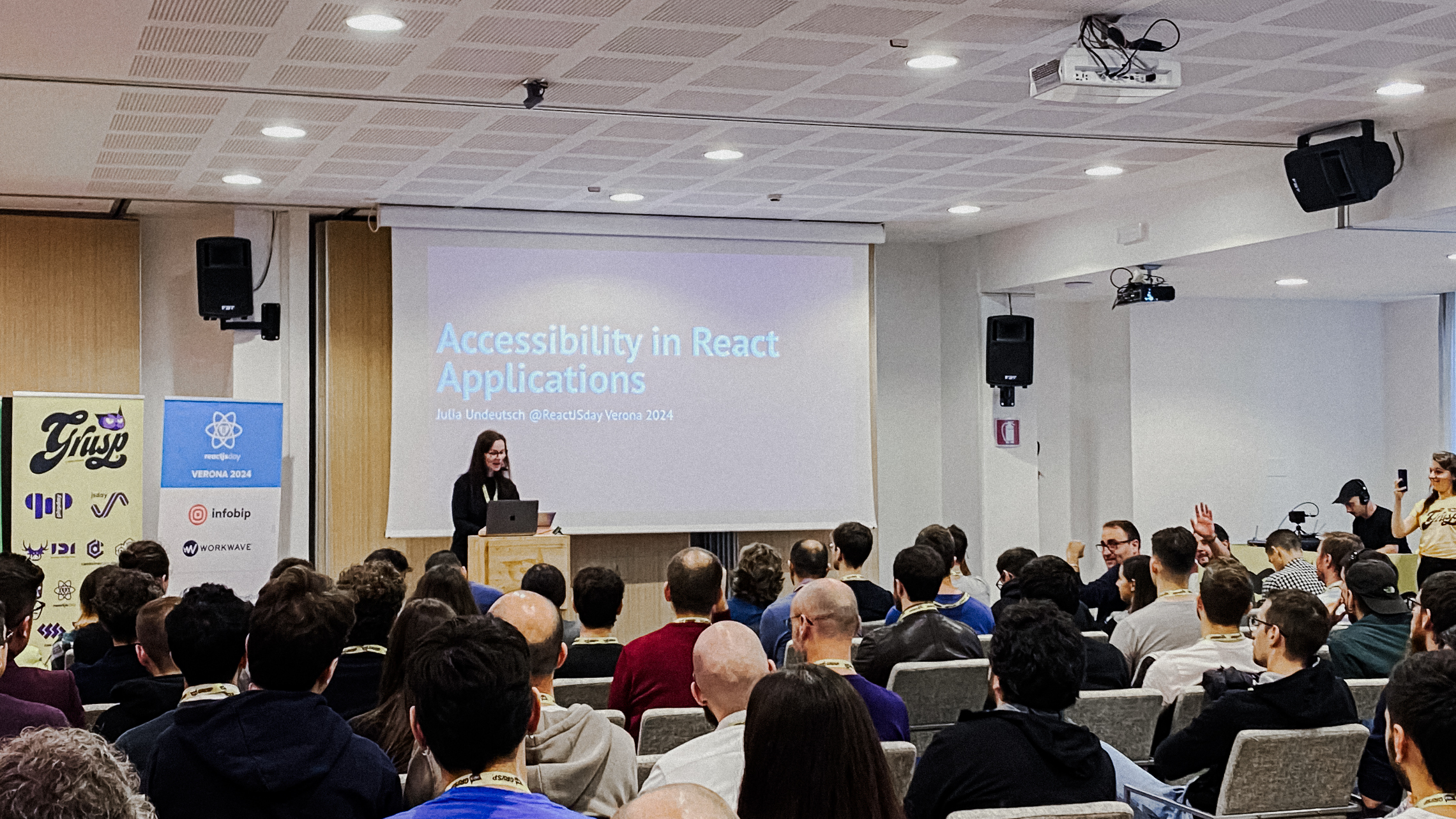
Our Developers team recently attended ReactJSday 2024 in Verona, a conference that explored the most significant changes and emerging trends in the world of React. Below, we delve into the talks that captured our team's attention and why they are so important for the industry.
One of the most intriguing talks was given by Kawtar Choubari, a TypeScript Developer at Alobees, who provided an in-depth look at React Server Components, a highly relevant topic. In the era of single-page applications, web pages were created and managed on the client side, meaning directly on the user's device. This often resulted in slow page loading times for complex applications and made them less accessible to search engines. Server Components, on the other hand, generate specific interface components on the server, allowing only the already-rendered HTML parts of the interface to be sent to the browser. Unlike Server-Side Rendering (SSR), which generates the entire page on the server with each request, Server Components allow for dynamic updates and loading of only the necessary components. This reduces the workload on the client and improves overall performance.
Giuseppe Funicello, a freelance developer, introduced another groundbreaking topic: the new React compiler, which is currently in beta. This tool promises to automate code optimization, reducing the need for manual techniques to enhance performance. For example, memoization, an optimization technique that stores the results of complex calculations for reuse without recalculating, will be automatically managed by the compiler, streamlining developers' workflow.

Lastly, the talk on accessibility by Julia Undeutsch, Dev & UX Accessibility Specialist at Atos, highlighted a crucial aspect of the web: making digital platforms accessible not only to people with disabilities but to everyone. A website designed with accessibility in mind makes navigation easier and offers a more intuitive and engaging experience. Using semantic HTML—tags that clearly describe the content—helps screen readers and other accessibility tools interpret the page structure more effectively, enhancing the experience for people with visual impairments. Additionally, careful focus management, or the order in which interactive elements like buttons and links are selected, enables smooth and intuitive navigation, making it easier for users to move through the page, especially when navigating with a keyboard. This approach not only improves the average user experience but also boosts interaction and inclusivity, contributing to a more equitable and user-friendly web.
ReactJSday 2024 proved to be an event full of insights and innovations, showcasing how front-end development is increasingly geared towards improving the performance, optimization, and accessibility of web applications. These advancements not only make developers' work easier but also enhance the overall user experience, making the web a more accessible and innovative space for all.